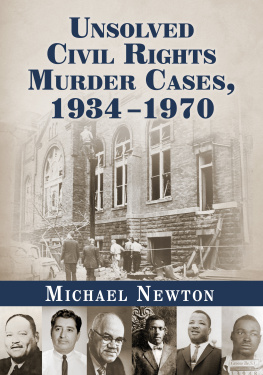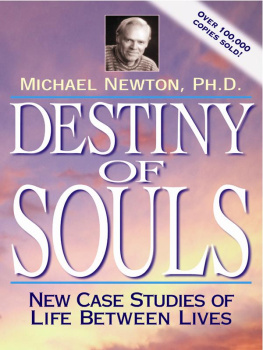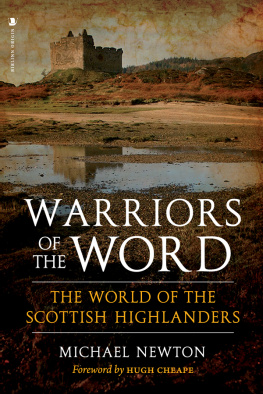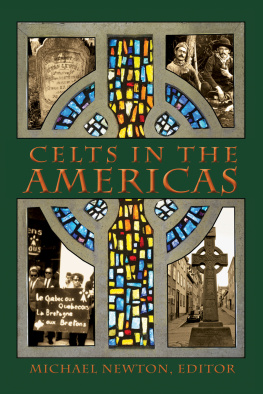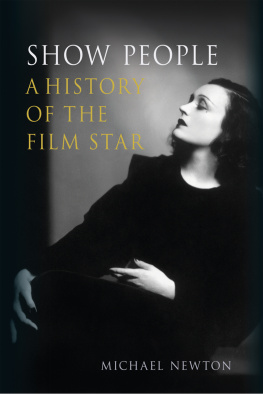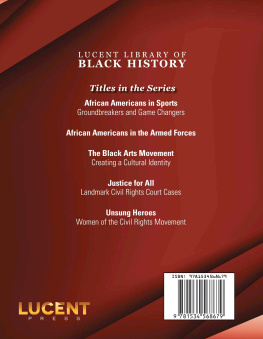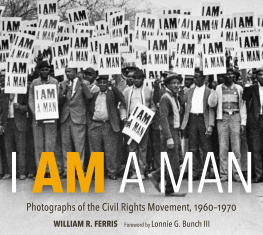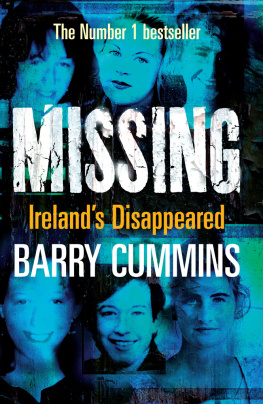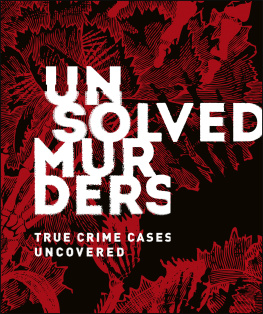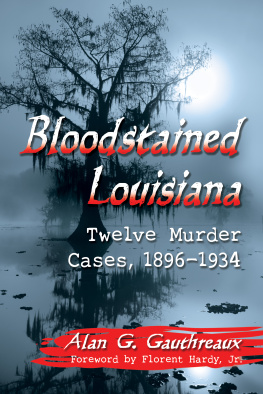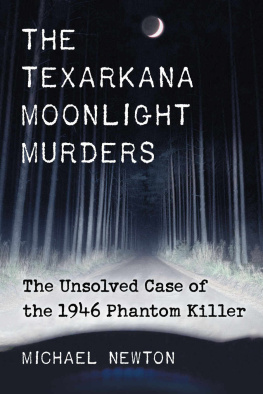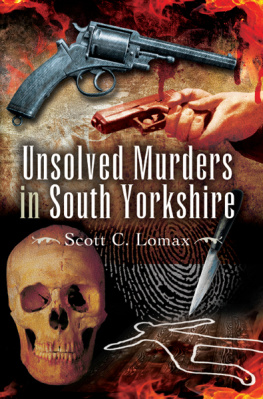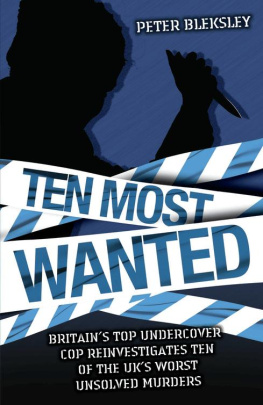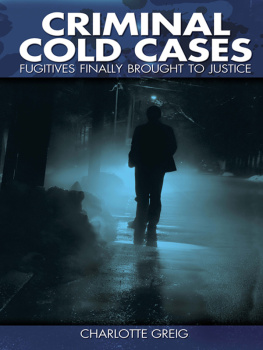Michael Newton - Unsolved Civil Rights Murder Cases 1934-1970
Here you can read online Michael Newton - Unsolved Civil Rights Murder Cases 1934-1970 full text of the book (entire story) in english for free. Download pdf and epub, get meaning, cover and reviews about this ebook. year: 2016, publisher: McFarland & Company, genre: History. Description of the work, (preface) as well as reviews are available. Best literature library LitArk.com created for fans of good reading and offers a wide selection of genres:
Romance novel
Science fiction
Adventure
Detective
Science
History
Home and family
Prose
Art
Politics
Computer
Non-fiction
Religion
Business
Children
Humor
Choose a favorite category and find really read worthwhile books. Enjoy immersion in the world of imagination, feel the emotions of the characters or learn something new for yourself, make an fascinating discovery.
- Book:Unsolved Civil Rights Murder Cases 1934-1970
- Author:
- Publisher:McFarland & Company
- Genre:
- Year:2016
- Rating:3 / 5
- Favourites:Add to favourites
- Your mark:
- 60
- 1
- 2
- 3
- 4
- 5
Unsolved Civil Rights Murder Cases 1934-1970: summary, description and annotation
We offer to read an annotation, description, summary or preface (depends on what the author of the book "Unsolved Civil Rights Murder Cases 1934-1970" wrote himself). If you haven't found the necessary information about the book — write in the comments, we will try to find it.
Unsolved Civil Rights Murder Cases 1934-1970 — read online for free the complete book (whole text) full work
Below is the text of the book, divided by pages. System saving the place of the last page read, allows you to conveniently read the book "Unsolved Civil Rights Murder Cases 1934-1970" online for free, without having to search again every time where you left off. Put a bookmark, and you can go to the page where you finished reading at any time.
Font size:
Interval:
Bookmark:

Also by MICHAEL NEWTON AND FROM MCFARLAND
Hate Crime in America, 19682013: A Chronology of Offenses, Legislation and Related Events (2014)
White Robes and Burning Crosses: A History of the Ku Klux Klan from 1866 (2014)
The Texarkana Moonlight Murders: The Unsolved Case of the 1946 Phantom Killer (2013)
The Mafia at Apalachin, 1957 (2012)
Chronology of Organized Crime Worldwide, 6000 B.C.E. to 2010 (2011)
The Ku Klux Klan in Mississippi: A History (2010)
Mr. Mob: The Life and Crimes of Moe Dalitz (2009)
The Ku Klux Klan: History, Organization, Language, Influence and Activities of Americas Most Notorious Secret Society (2007; paperback 2014)
Encyclopedia of Cryptozoology: A Global Guide to Hidden Animals and Their Pursuers (2005; paperback 2014)
The FBI and the KKK: A Critical History (2005; paperback 2009)
The FBI Encyclopedia (2003; paperback 2012)

McFarland & Company, Inc., Publishers
Jefferson, North Carolina
LIBRARY OF CONGRESS CATALOGUING DATA ARE AVAILABLE
BRITISH LIBRARY CATALOGUING DATA ARE AVAILABLE
e-ISBN: 978-1-4766-2362-7
2016 Michael Newton. All rights reserved
No part of this book may be reproduced or transmitted in any form or by any means, electronic or mechanical, including photocopying or recording, or by any information storage and retrieval system, without permission in writing from the publisher.
Front cover images top and left to right: Birminghams Sixteenth Street Baptist Church, September 15, 1963 (Library of Congress); George Washington Lee (National Archives); Rubn Salazar (Library of Congress); Leon Jordan (Library of Congress); Lamar Smith (Library of Congress); A. D. King (Library of Congress); Willie Earle (National Archives)
McFarland & Company, Inc., Publishers
Box 611, Jefferson, North Carolina 28640
www.mcfarlandpub.com
For Heather,
for her constant love and support.
Justice delayed is justice denied.
William Ewart Gladstone (18091898)
Librarians and journalists throughout the country were extremely generous in aiding my research for this book. I owe thanks to Greg Adams, editor-publisher of the Wilk-Amite Record; Johnny Adams, Union Springs Herald; Clellie Allen, editor and associate publisher of the Wake Forest Weekly; Mark Andrews, formerly with the Orlando Sentinel; Susan Blakeney, genealogist with the Laurel-Jones County Library System; Janet Boudet, associate director of the Roddenberry Memorial Library; Lucy Boyd, Charleston Sun; William Browning, ColumbusDispatch; Patti Burns, head of adult services at the Georgetown County Library; Germaine Butler, genealogy/reference librarian at the St. Tammany Parish Library; Holley Cochran, editor and general manager of the Prentiss Headlight; the Danville Public Librarys Reference and Archives Department; Tim Davis, editor of the Chatham Star-Tribune; the Dayton Metro Library; Elizabeth DeGrie, managing editor of the Ruston Leader; Pam Edmondson, Edgecombe County Memorial Library; John Ellzey, Ricks Memorial Library; Jonathon Finley, editor of the Montgomery Monitor; Mercedes Franks, director of the Judy B. McDonald Public Library; Michelle Goad, head librarian for the Arkansas Democrat-Gazette; Irene Godwin, Ellen Payne Odom Genealogy Library; Polly Greene, St. Tammany Farmer; Rod Guajardo, news director for the Natchez Democrat; Susan Hedrick, ChathamStar Tribune; Carolyn Hemstreet, Hale County Library; Marianne Hill, Powhatan County Public Library; Thomas Hutchens, Huntsville-Madison County Public Library; Yvonne Keller, Courier Communications; Sheila Lence, Ripley Public Library; Andy Lewis, Woodville Republican; the Luverne Public Library reference staff; Alanna Maddox, reference librarian at the Decatur Public Library; Susan Martin, Live Oak Public Library; Professor Gary May, University of Delaware; Katrena McCall, WalterboroPress and Standard; Clay McFerrin, editor and publisher of the Sun-Sentinel; William McMullin, Mississippis Northeast Regional Library; Jerry Mitchell, Clarion-Ledger; Stanley Nelson, Concordia Sentinel; Jason Niblett, The Chronicle in Laurel, Mississippi; the Olivia Raney Librarys staff; Teresa Pennington, Paris Carnegie Public Library; Brenda Poke, Washington County Library System; Martha Powers-Jones, Ohoopee Regional Library System; Valerie Reddell, editor and publisher of the Gonzales Inquirer; the reference staff of the Waterloo Public Library; Linda Reynolds, director of the East Texas Research Center at Stephen F. Austin State University; Debbie Ryan, managing editor of the Nacogdoches Daily Sentinel; Evelyn Screws, adult services librarian at the Eufaula Carnegie Library; Carolyn Vance Smith, founder and co-chairman of the Natchez Literary and Cinema Celebration; Jan Smith, news research director for the Commercial Appeal; Jennifer Stapleton, San Pedro Regional Branch of the Los Angeles Public Library; Regina Strickland, Horseshoe Bend Regional Library; Maryann Struman, Detroit Free Press; Scott Taves, Chicagos Howard Washington Library Center; Tanna Taylor, Tombigbee Regional Library; Claudine Tomlinson-Burney, director of marketing and public relations for the Orange County Regional History Center; Troy Valos, Slover Memorial Librarys Sargeant Memorial Collection; Sheila Vance, Ripley Public Library; Anne Vanderleest, genealogy librarian at the Brandon Public Library; Lisa Wehrmann, the Library of Virginia; and Tiffany Woo, Eufala Tribune. Thanks also to my wife Heather for her loving forbearance as I navigated murky rivers of the human heart.
I grew up, in a sense, with the civil rights movement. Thirty-two months after my birth the U.S. Supreme Court issued its momentous ruling against public school segregation, and the rest is literally history: boycotts, sit-ins and freedom rides, black voter registration drives and white resistance to the point of death. On the eve of my 12th birthday Ku Klux Klansmen bombed an Alabama church, killing four girls ages 11 to 14. I was 16 before the movement touched me personally, with minority complaints against my alma materSouth High School in Bakersfield, Californiafor choosing a Confederate battle flag and a gray-clad Johnny Rebel mascot to represent a student body that was roughly one-third African American. It made no difference that Johnny Rebel, in my senior year, was a black student who sought the job and won election overwhelmingly. The heat was on in those years, and it left the ashes of tradition in its wake.
Down Souththat land we read about and saw on television newscasts that appeared as foreign to our own experience as Vietnam or the embattled Belgian Congothe ashes came from burned-out churches, homes, and meeting halls where people of color met to plead for simple justice. I was aware of certain murders, following the cases from a distance, but had no idea how many victims fell before one pundit or another finally decided that the movement was defunct. Most of its goals had been achieved, at least on paper, signed by presidents. What more was there to do, except forget about the years of pain and loss, focus on keeping Asian communism from our shores at any cost, and plowing on ahead toward Watergate?
Next pageFont size:
Interval:
Bookmark:
Similar books «Unsolved Civil Rights Murder Cases 1934-1970»
Look at similar books to Unsolved Civil Rights Murder Cases 1934-1970. We have selected literature similar in name and meaning in the hope of providing readers with more options to find new, interesting, not yet read works.
Discussion, reviews of the book Unsolved Civil Rights Murder Cases 1934-1970 and just readers' own opinions. Leave your comments, write what you think about the work, its meaning or the main characters. Specify what exactly you liked and what you didn't like, and why you think so.

